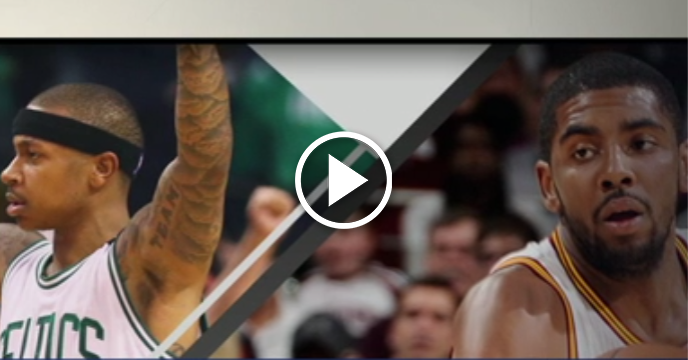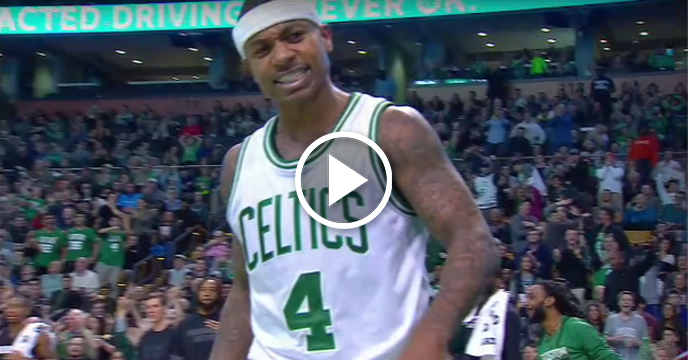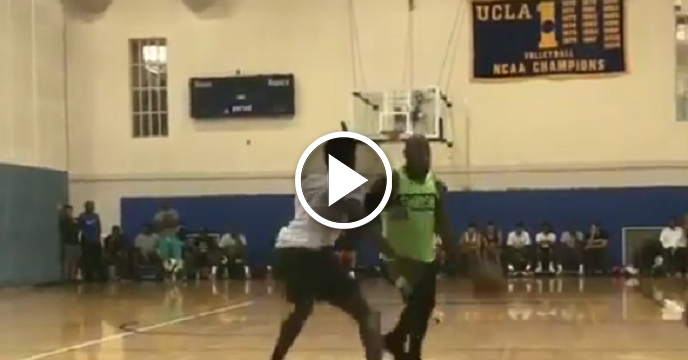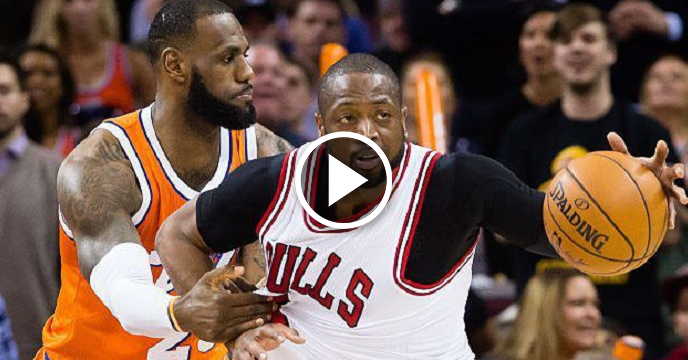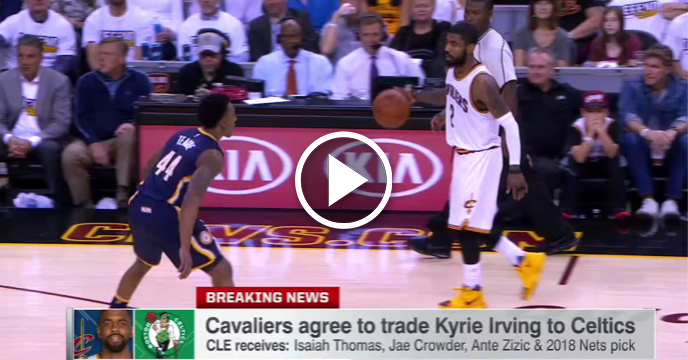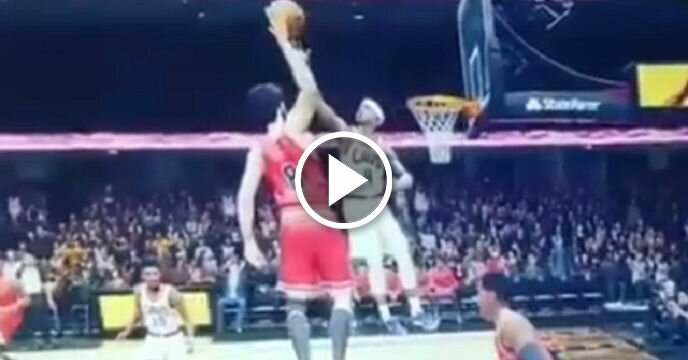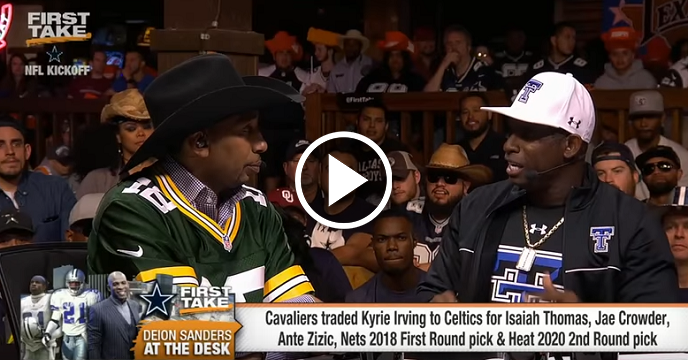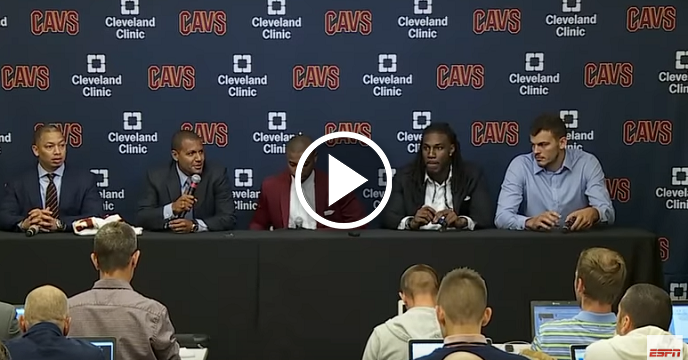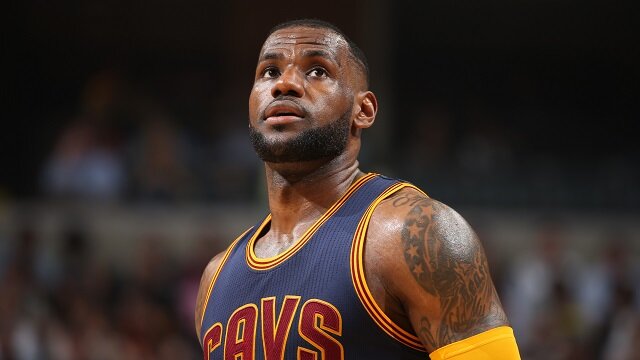
For what it’s worth, I like LeBron James.
He’s a great player. He’s fun to watch. He seems like a relatively likable guy. But damn if he doesn’t disappoint me.
As a basketball player, there’s nothing more magical than watching a player become unstoppable. This is why rival crowds would cheer for Michael Jordan as he dominated their home team.
And it’s why, as a big-time Golden State Warriors fan, I was nearly disappointed to see them win the 2015 NBA Finals instead of the Cleveland Cavaliers.
It’s why I can watch LeBron get 40 points, 8 assists, and 12 rebounds and still be wildly disappointed in his performance.
At the end of the day, LeBron refuses to be unstoppable.
The Tale of Two LeBrons
I’ve watched LeBron his entire career, and perhaps unlike any other player of his caliber, I’ve noticed two distinctly different LeBrons.
The first LeBron is unstoppable. He makes the championship Detroit Pistons look like children. He bends a dominant Boston Celtics to his will. He can single-handedly take his team up 20 points against a juggernaut Golden State squad. The first LeBron has nothing to lose, and he ALWAYS wants the ball in his hands in the clutch.
But alas, there is also a second LeBron.
The second LeBron is inexplicably timid. He dribbles around at the three-point line until there are 10 seconds left on the shot-clock and then passes it off to a teammate who will inevitably take a low-percentage shot and waste the possession. The second LeBron seems to be afraid of failing. Without ignorantly speculating on the reason, I’ll simply observe that he is hesitant to risk missing when his team needs a bucket.
I’ve waited patiently for the second LeBron to finally die and yield its essence to the real LeBron – the unstoppable LeBron.
I thought it might happen when James dominated the Celtics in Game 6 of the 2012 Eastern Conference Semi-Finals, making Boston’s renowned defense look juvenile as he scored 45 points, nabbed 15 rebounds, and made his performance look… easy.
I thought it had happened for sure later that summer, when James clearly and unapologetically lead the US Olympic team, dominating every opponent with ease. His decision making reminded me of Jordan’s rise on the 1992 Olympic team, when Jordan replaced Magic Johnson as the de facto man on campus.
I thought, perhaps, I would finally see it happen in Game 3 of this year’s NBA Finals, as James owned the third quarter, taking his injury-plagued Cavaliers to a 20-point lead over the previously unflappable Warriors.
But then the fourth quarter came, and like so many times in his career, unstoppable LeBron disappeared, refusing to finish the kill – wasting half the possessions at the three-point line before handing the ball away – going three, four, five possessions without even attempting to score – suddenly turning into Mr. Facilitator on a team that needed the 2008 Scoring Champion.
Why?
LeBron Can Win Whenever He Wants To
The simple truth of the matter is that James can win anytime he wants.
He’s that good. 40 points, 8 assists, and 12 rebounds are peanuts compared to what he’s capable of. That’s an easy stat-line for James.
When LeBron takes the rock hard to the bucket, there are only three possible results:
- He scores.
- He gets fouled.
- He makes a beautifully precise pass to a wide open teammate for an uncontested three.
Sure he has his off-nights, but nine games out of 10, those are the only three possible outcomes anytime he drives to the hole.
The aforementioned third quarter consisted almost exclusively of LeBron taking possession after possession to the bucket.
- He scored touch layups off the glass.
- He threw down thunderous dunks.
- He dropped mid-range jumpers with ease.
- And he was 3-3 on that unstoppable post-up step-back in the paint.
And then the quarter sounded and just a few minutes later, we saw a completely different LeBron.
We saw the indecisive LeBron. The time-wasting LeBron. The goes-five-minutes-without-shooting LeBron.
Perhaps I’m just a textbook, “if it aint broke, don’t fix it” guy, but from where I’m sitting, if a certain playstyle takes you up 20 points in a single quarter, you don’t just stop utilizing that playstyle.
Call me crazy, but I want to watch a game where LeBron takes it to the bucket two plays out of every three. I want to see a game where he stops worrying about whether he’s being a ball hog.
You might say I want to see LeBron play a Kobe Bryant-style game.
Why It Makes Sense To Be Disappointed
For all Kobe’s shortcomings as a team facilitator, he was NEVER indecisive – NEVER hesitant to score – NEVER acceptable with the ball in anyone else’s hands come crunch time.
When talking about LeBron, his talent prohibits us from marveling at his stat-lines. We can’t get overly excited about another triple double, because that’s an average Tuesday for someone with his raw talent.
When we talk about LeBron, he can ONLY be compared with guys like Jordan, Bryant and Johnson, and each of these players possessed a key element that LeBron has never seemed to possess.
Sheer willpower.
This might sound absurdly philosophical, but anyone who has played basketball on a competitive level knows exactly what I’m talking about.
Unless the talent matchup is wildly out of proportion (think 2007 San Antonio Spurs vs. Cavaliers), it’s not talent that prevails – it’s willpower. It’s the question of who wants it more.
Typically, competitive drive is enough to trigger this type of willpower. I would never go so far as to say that LeBron isn’t competitive, but he certainly tends to display an odd lack of drive in the most unusual of situations.
He looked almost disinterested throughout the entirety of his 2014 Finals loss against the Spurs. He looked like he’d clocked out in Game 6 of this year’s Finals. At times when the defense was on its heels, he’d just stop punishing them. He’s done this throughout his entire career, almost as if he doesn’t want it to be too easy.
LeBron had zero chance to beat the Spurs in 2007. But then, the talent field was far too outmatched, and LeBron hadn’t yet developed the halfcourt scoring repertoire he has now.
But 2014 should have been EASY. And while “the odds were against him” this last year, his team demonstrated they had the talent to win in Games 1-3. LeBron demonstrated he had the talent to single-handedly dominate the Warriors in Game 3.
But Game 5 rolled around and unstoppable LeBron disappeared, replacing himself with Mr. Facilitator. Game 6 rolled around and we got a visit from our old friend, Seemingly Disinterested LeBron.
Some say he was fatigued, but I’ve seen this time and time again. Some say I’m not appreciating how remarkable their run to the Finals was, but seriously, Boston? Chicago? Half-team Atlanta?
I’ve spent most of my life waiting for LeBron to do what he’s capable of doing – to turn the NBA into his personal playground – to dominate ceaselessly and unapologetically.
And yet, with the King losing his fourth Finals at the age of 30, I’ve accepted the fact that this will never happen.
And that, to be honest, is wildly disappointing.
Jacob McMillen is a writer, marketer, and the content director for CoachTube. In addition to running an epic men’s blog, he won’t hesitate to rob you of your dignity on the basketball court. Follow him on twitter @jmcmillen89
 Share
Share 


